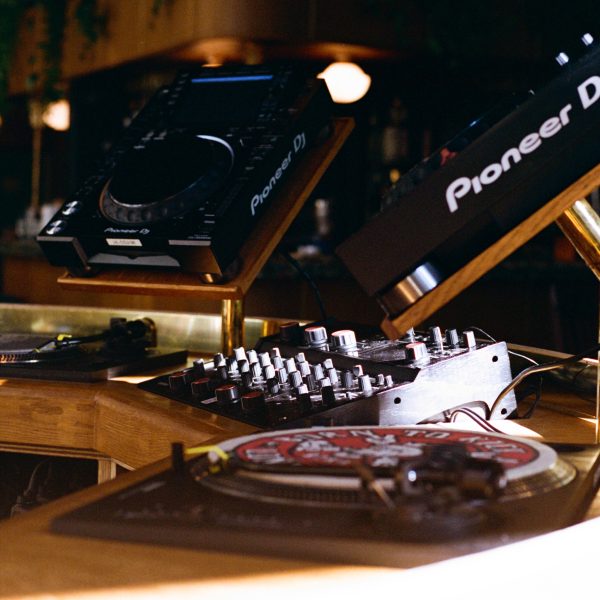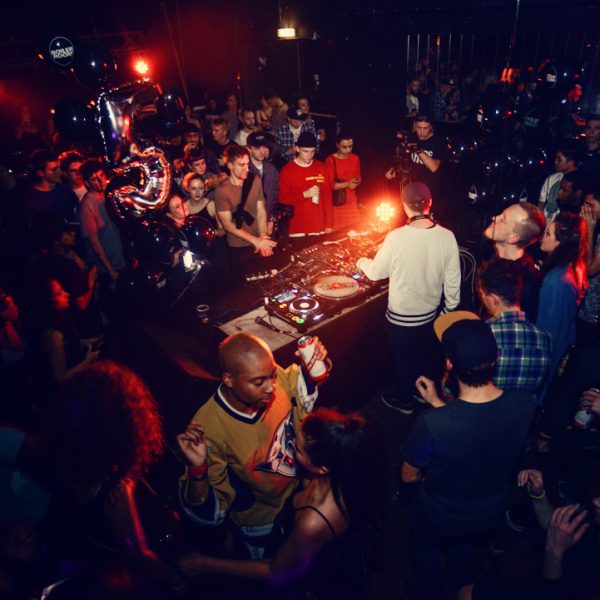There is no particular genre or sound associated with Russian dance music. Mysterious lo-fi house and techno, often with Soviet-era samples, was prevalent a few years ago, but when it became a little clichéd the producers looked for something else. An incessant search, keeping up with trends yet trying to stay away from them, could be what separates Russian electronic musicians from the rest of the world.
Isolation has long been an issue for the local electronic music scene, which is why producers often wanted to release their records on Western labels. At the end of the 2000s, as high-speed internet connected the globe, people in Russia started cultivating their own creative land, trying to understand who they are. Difficult questions were asked: Have we just lost the 20th century, or should we credit it for our uniqueness? Do we have to catch up with the rest of the world, or is there a special path for our East-West country? Russian culture often reflects such questions, which have no definitive answers.
However, none of this means that Russian dance music is overly intellectual. Russians definitely like to have fun—Moscow and Saint Petersburg both boast vibrant nightlifes. For better or worse, the local dance culture is definitely escapist, usually staying far from protest. Yet the scene is becoming more visible—the words “rave” and “techno party” appear in widely popular tracks, and producers collaborate with well-known hip-hop artists.
In the 1990s, Russian electronic music fans were mostly obsessed with partying, not with making music. The means of production were rarely available, and releasing music was a different level of challenge. There were some exceptions to the rule, like Solar-X’s Art-Tek imprint, but when Ptuch, a magazine for ravers, introduced a new section called “Labels” in 1995 there were no Russian labels in sight.
This has definitely changed. Highlighting 10 labels, as we do here, shows just a small slice of what’s out there. Most visible imprints are based in Moscow and Saint Petersburg, although micro-scenes keep appearing in different regions. Faktura Ural shows what’s happening in the Ural region, while ABCD preserves and continues the history of Izhevsk, where electronic music was popular in the ’90s and ’00s.
Today, a label is often a community of friends connected not only by music but also by another project. A lot of labels throw their own parties, like Slowdance Records, Oberwave and Ida. Many promoters and clubs have labels—Arma17, System108, m_division and Stackenschneider are among the examples. Some important hubs like the TestFM online radio station, the Resonance Moscow radio show and the Electro Music Coalition community also release music.
There are so many promising labels to check out that have appeared in the past few years—pkge, Avacha Records, Poonex Globo, NOSERVICE, CYBERJIT, Volking Music, Hanagasumi, podval—while plenty of artists have launched their own labels. See the likes of Moa Pillar’s Peer, Philipp Gorbachev’s PGTune, Simple Symmetry’s New Ears, Julia Govor’s Jujuka , Lay-Far’s In-Beat-Ween Music and Anton Kubikov’s Pro-Tez. None of this is to mention experimental labels that flirt with dance music. And it’s also a question of terminology whether Korpus 9 can be considered Russian, as its founder, Kwazalski, who is from Saint Petersburg, releases techno from all over the world.
What we have here, then, are 10 labels that are representative of what’s happening nowadays, collecting some of the freshest sounds from all over the country. These labels show deep cultural richness in an unprecedented time of creativity for Russian dance music.




